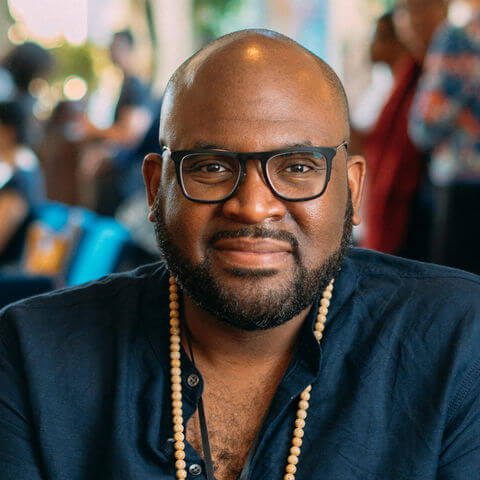


My experience as a Black woman is that often I’ll be expressing some other kind of emotion like excitement or sadness or fear, and people will say, Oh, you’re angry, you’re angry and that can be so hurtful.

KJ: Yeah, when you said that about teachers coming to you and saying, I see your anger, it’s such a sensitive place because…. That began this process that led into depression for me, and I think that I was so hesitant to externalize anger because externalizing anger as a Black man was dangerous. I had redirected it, and deeply internalized it. LRO: What I began to see that anger was deeply turned around, like I wasn’t acting angry. KJ: What was the relationship between the anger and the depression? But as I moved out of my early twenties, I began to see what people were talking about, and for me, clinical severe depression was really the first time that I began to understand the impact of anger in my experience. LRO: Yeah, it was so ingrained, like anger was so much a part of my life, and I was heavily in activism so it was really fueling something for me. Kate Johnson: That reaction to being told you were angry. I would be like, Fuck you, and I couldn’t see that reaction as an expression of anger. People would come and sit me down, and they would be like, This is what I’m seeing. They were coming to me saying, “Rod, I think you have a problem with anger.” I couldn’t see it it was so normalized for me. Actually, there were senior practitioners that I was around who were coming to me initially, before I really had a practice. She is dedicated to actualizing possibility, serving love, and embodying the truth of our shared being.Ĭaverly lives in Portland, Oregon with her husband Vineet and their dog Dōgen.Lama Rod Owens: I would say anger was really the first material I had to work with, that began my practice. An artist and educator, she brings insight, passion, warmth and humor to her transformative work with students of all ages and experience levels. Prior to her pioneering efforts with Peace in Schools, Caverly worked for nonprofits serving people with special needs. She has been a teacher and presenter at the Science and Nonduality Conference, 1440 Multiversity, Sangha Live, Esalen, the Mind and Life International Symposium for Contemplative Research, Buddha at the Gas Pump, Open Circle, the New York Zen Center of Contemplative Care, and many more. She has been teaching contemplative practice since 2001.Ĭaverly speaks publicly at conferences on topics including contemplative practice, personal and collective transformation, social entrepreneurship, authentic leadership, and mindfulness education, and has been featured in publications such as Mindful magazine (as a cover subject) and The New York Times.Ĭaverly leads meditation retreats, workshops, and online classes internationally. Her practice began in 1995 and has included eight years of training in a silent Zen monastery. Her recent book for adults, The Heart of Who We Are: Realizing Freedom Together, through Sounds True is available here.Ĭaverly blends the original spirit of Zen with a modern nondual approach. She is also the founder of Presence Collective, a community of cross-cultural contemplatives committed to personal and collective transformation.Ĭaverly is the author of A Kid’s Book About Mindfulness. She is the founder and Lead Contemplative of Peace in Schools-a nonprofit which created the nation’s first for-credit mindfulness class in public high schools. Caverly Morgan is a contemporary spiritual teacher, author, speaker, and nonprofit founder.


 0 kommentar(er)
0 kommentar(er)
